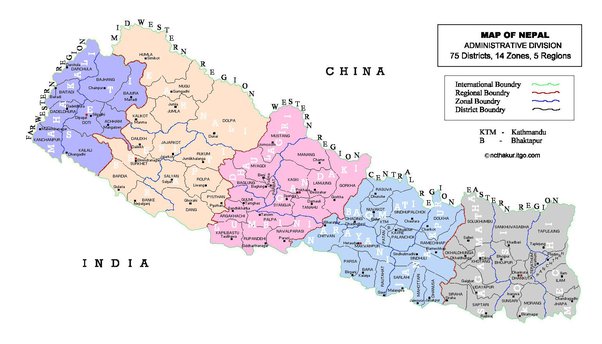Did you know that Nepal, a predominantly Hindu country, made a significant transition in its identity by officially declaring itself a secular state in the Nepali calendar? This historical moment occurred in 2063 BS, marking a shift towards inclusivity and religious freedom.
This decision had far-reaching implications and transformed the country’s social and cultural fabric, fostering a more tolerant and diverse society. Join us as we explore the significance of this landmark event and how it has shaped Nepal’s journey towards embracing pluralism.
Historical Background
Nepal, a country nestled in the beautiful Himalayas, has a rich historical and cultural significance that has shaped its identity over the centuries. The history of Nepal is closely intertwined with the institution of monarchy, which has played a dominant role in the governance of the country for centuries.
Monarchy in Nepal
For most of its history, Nepal was ruled by a monarchy. The Shah dynasty, which took power in the late 18th century, established the Kingdom of Nepal and ruled the country for more than two centuries. The kings were considered to be the embodiment of divinity, and their rule was guided by the principles of Hinduism.
Religious Composition in Nepal
Nepal is known for its religious diversity and tolerance. While Hinduism has been the predominant religion, Nepal is also home to significant Buddhist and other religious communities. This religious pluralism has played a crucial role in shaping Nepal’s cultural fabric and fostering a sense of unity among its diverse population.
Hindu State Status
The status of Nepal as a Hindu state was deeply rooted in its history and identity. Hinduism, as the state religion, exerted a significant influence on the country’s social, political, and cultural spheres. The Hindu state status was enshrined in the constitution and was seen as a reflection of the country’s ancient traditions and values.

Secular Movement in Nepal
In recent decades, Nepal has witnessed a growing secular movement, advocating for the separation of religion and state. This movement emerged as a response to the changing societal dynamics and aspirations for a more inclusive and democratic system.
Emergence of Secularism in Nepal
The emergence of secularism in Nepal can be traced back to the 1950s when the country began to experience socio-political changes, influenced by global forces. As national consciousness grew, there was a growing demand for a more inclusive and progressive society that respected the rights and beliefs of all its citizens, regardless of their religious affiliations.
Advocates of Secularism
Numerous activists, intellectuals, and political leaders have been at the forefront of the secular movement in Nepal. They have tirelessly advocated for the establishment of a secular state that upholds religious freedom, equality, and social justice. These advocates recognize the importance of embracing diversity and promoting harmony among different religious communities.
Political Parties and Secularism
Various political parties in Nepal have also supported the secular movement. They have included secularism as a fundamental principle in their party policies and have championed its cause in the political arena. The commitment to secularism has become an essential element of Nepal’s political landscape, demonstrating the country’s desire for a more inclusive and democratic society.
Constitutional Changes
The journey towards secularism in Nepal involved significant constitutional changes that aimed to redefine the relationship between state and religion.
Interim Constitution of 2007
In 2007, Nepal adopted an interim constitution, marking a significant milestone in its transition towards a secular state. The interim constitution served as a crucial stepping stone towards the adoption of a permanent constitution that reflected the aspirations of the Nepalese people.
Provisions of Interim Constitution
The interim constitution not only declared Nepal as a secular state but also recognized and guaranteed the fundamental rights of all citizens, irrespective of their religious beliefs. It emphasized the importance of religious freedom, equality, and social justice, promoting a society that respects and celebrates diversity.
Debate and Controversies
The transition towards a secular state in Nepal was not without its controversies and debates. While some welcomed the change, others held deep reservations about the abandonment of Nepal’s Hindu state status. These debates sparked passionate discussions about the country’s identity, cultural heritage, and the role of religion in its governance.
Declaration of Nepal as a Secular State
The formal declaration of Nepal as a secular state occurred through a series of political processes and the rewriting of the country’s constitution.
Constitutional Assembly Election of 2013
In 2013, Nepal held a constitutional assembly election, a momentous event that brought together representatives from various political parties to draft a new constitution for the country. This election marked a crucial turning point in Nepal’s journey towards a secular state.
Formation of Constituent Assembly
The Constituent Assembly, comprising elected representatives, was entrusted with the responsibility of drafting the new constitution. Their task involved striking a delicate balance between the aspirations of religious communities and the need for a progressive, inclusive society.
Constitution of 2015
After years of deliberation and discussions, Nepal finally adopted a new constitution in 2015. This constitution formally declared Nepal as a secular state, upholding the principles of religious freedom, equality, and social justice. It was a historic moment that reflected the aspirations of the Nepalese people for a more inclusive and progressive society.
Impact and Implications
The declaration of Nepal as a secular state had far-reaching consequences, impacting various aspects of Nepalese society.
Religious Freedom and Equality
The secular state status ensured that all religious communities in Nepal were granted equal rights and protection under the law. It marked a significant step towards the realization of religious freedom, allowing individuals to practice their faith without fear of discrimination or persecution.
Change in National Identity
The transition from a Hindu state to a secular state brought about a shift in Nepal’s national identity. It signaled a departure from the exclusive association with Hinduism and embraced the diversity and religious pluralism that existed within the country. This change challenged traditional notions of identity and opened doors for a more inclusive and harmonious society.
Challenges and Criticisms
While the declaration of Nepal as a secular state was a significant milestone, it was not without challenges and criticisms. Some critics argue that the move towards secularism jeopardizes the cultural essence and national unity of Nepal. They fear that the country’s religious heritage and traditions might be undermined in the process. These concerns highlight the complex nature of the secularism debate and the need for ongoing dialogue and understanding.
Relations with India and China
The declaration of Nepal as a secular state also had implications for its relations with its neighboring countries, India and China.
India’s Perception of Nepal’s Secular State
India, which shares deep historical, cultural, and religious ties with Nepal, observed the country’s shift towards secularism with interest. While some sections in India acknowledged Nepal’s decision as a reflection of its democratic aspirations, others expressed concerns about the impact on the cultural and religious bond between the two nations. Overall, the secular state status did not significantly impact the overall bilateral relations between India and Nepal.
China’s Response to Nepal’s Secularism
China, another important neighbor of Nepal, maintained a pragmatic approach towards Nepal’s secularism. China recognizes Nepal’s right to determine its own governance structure and respects its decision to become a secular state. The secular status of Nepal did not considerably affect its relationship with China.
Geopolitical Implications
The declaration of Nepal as a secular state had broader geopolitical implications, as it signified Nepal’s desire to position itself as a modern, progressive nation in the international arena. It was seen as a crucial step towards aligning Nepal’s identity with the global trends of inclusivity and religious freedom.
Role of International Community
The international community, including various organizations and countries, has played a significant role in supporting Nepal’s transition towards a secular state.
International Organizations and Nepal’s Secularism
International organizations, such as the United Nations, have been instrumental in advocating and promoting the principles of religious freedom and human rights in Nepal. They have actively engaged with Nepal’s government and civil society to ensure that the transition towards secularism is carried out in a manner consistent with international standards and principles.
Support and Assistance
Several countries around the world have expressed their support for Nepal’s secularism, recognizing it as a fundamental aspect of a democratic and inclusive society. They have provided assistance and shared their own experiences of managing diverse religious communities, offering guidance and expertise in navigating the challenges that arise in the process.
Critiques and Concerns
Nepal’s secularism has also faced critiques and concerns from certain international quarters. Critics argue that the secular state status might pose challenges to the preservation of Nepal’s cultural heritage and religious traditions. However, the international community acknowledges Nepal’s right to determine its own path and has largely respected its decision to become a secular state.
Socio-cultural Aspect
The transition towards secularism in Nepal has had a profound impact on the socio-cultural fabric of the country, fostering inter-faith harmony and cooperation.
Religious Festivals and Celebrations
Religious festivals and celebrations have always held a special place in Nepalese culture. The secular state status has provided an opportunity for different religious communities to come together, celebrate their festivals, and engage in cultural exchanges. This has contributed to a greater sense of unity and mutual respect among different religious groups in Nepal.
Inter-faith Harmony and Cooperation
The declaration of Nepal as a secular state has paved the way for inter-faith harmony and cooperation. This has been exemplified by various inter-faith initiatives, where individuals from different religious backgrounds come together to address common challenges and promote dialogue and understanding. The secular state status has encouraged a spirit of cooperation and mutual respect among different religious communities.
Role of Religious Institutions
Religious institutions have played a crucial role in promoting inter-faith harmony and cooperation. They have actively engaged in dialogue, organized joint celebrations, and worked towards addressing social issues collectively. These institutions have become more inclusive, recognizing and valuing the diversity of religious beliefs within the country.
Contemporary Developments
Since the declaration of Nepal as a secular state, several contemporary developments have shaped the ongoing discourse surrounding secularism in the country.
Efforts to Amend the Constitution
In recent years, there have been efforts to amend certain provisions of the constitution that pertain to the secular state status. These efforts have sparked debates and discussions, with some advocating for a revision of the constitutional provisions to reestablish Nepal as a Hindu state, while others stand firm on the principles of secularism and religious equality.
Demands for Reverting to Hindu Status
Certain sections of society in Nepal have voiced demands for reverting to the Hindu state status, citing concerns about the erosion of traditional values and the need to preserve Nepal’s cultural identity. These demands reflect the ongoing tensions and debates about the role of religion in the country’s governance.
Secularism vs. Hindu State Debate
The debate between secularism and the Hindu state status continues to shape Nepal’s political landscape. It represents a clash between different visions of national identity and the role of religion in governance. This ongoing debate underscores the complexities and challenges associated with managing a diverse and pluralistic society.
Conclusion
The declaration of Nepal as a secular state marked a significant milestone in the country’s history. It reflected Nepal’s commitment to embrace diversity, promote religious freedom, and build an inclusive and progressive society.
While the transition towards secularism has not been without its challenges and controversies, it has opened doors for inter-faith harmony, cooperation, and the recognition of equal rights for all citizens. The ongoing debate surrounding secularism and the Hindu state status is a testament to the evolving nature of Nepalese society and its aspirations for a democratic and inclusive future.
